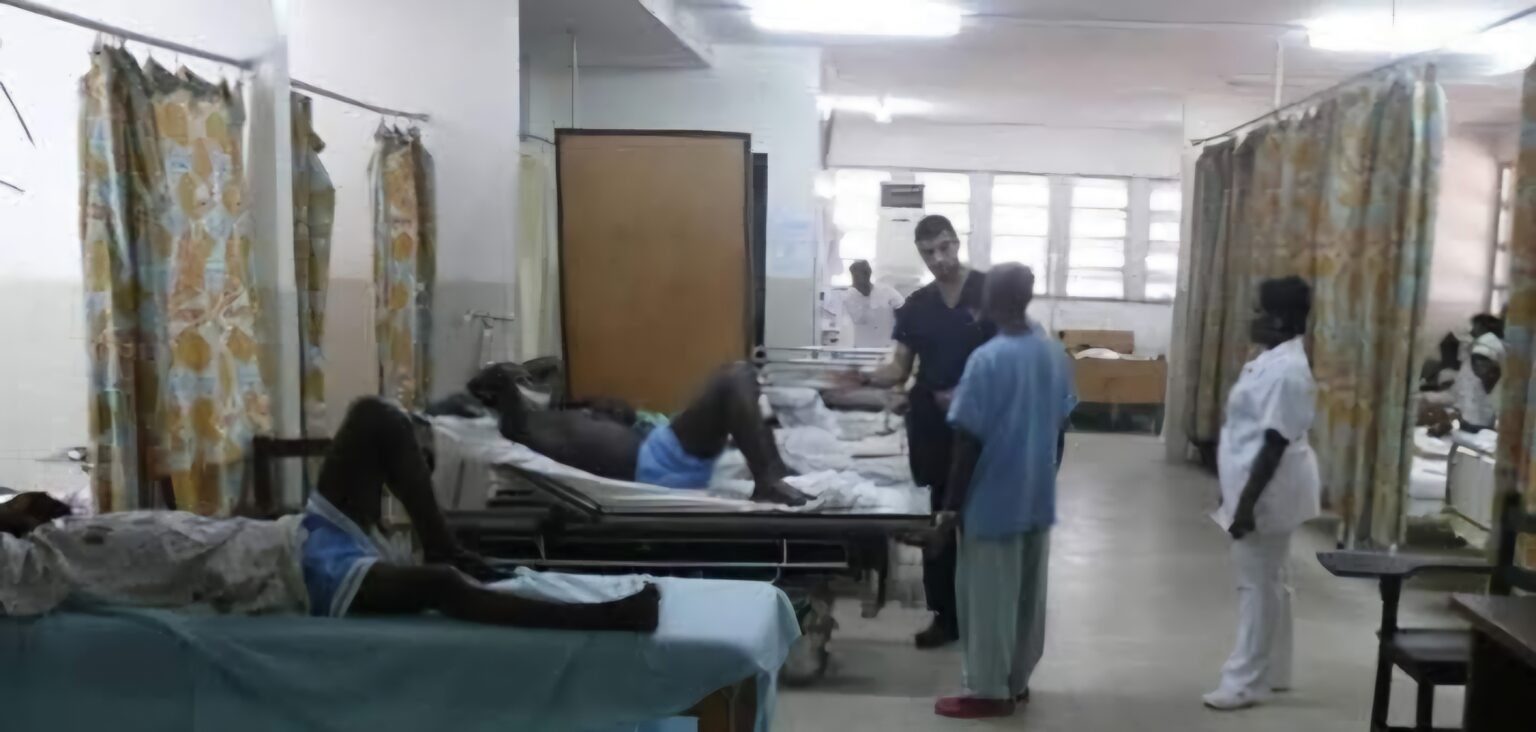By: Julius Konton
At the Country’s premier health institution, John F. Kennedy Medical Center (JFK) the dream of healing has mutated into a nightmare of neglect.
Founded in 1971 and designed as Liberia’s tertiary referral and teaching hospital, the institution should stand as a symbol of care and progress. Instead, it is collapsing.
Every day, desperate Liberians cross its threshold in search of life, yet too many leave dead, or broken in body and spirit.
One activist described it bluntly: “This is not a hospital anymore. It’s a death chamber.”
Tennie Kormazu Kparzarwalah Jallah, a public-health advocate, told our reporter the nation’s once-premier medical institution has become a national shame, where patients perish not from terminal illnesses but from the absence of basic medication, functioning systems and humane care.
“Lives go to fade, not heal inside JFK”
“If they have no money, their loved ones are left to suffer in silence or die unattended.”
“There is no system, no compassion, no information flow.” said Jallah.
During a recent tour of the facility, Jallah observed patients lying for hours, sometimes days, without medications, as family members roamed Monrovia in search of basic drugs, syringes and bandages.
He recounted wards in which:
The pharmacy is often empty, leaving families to buy medicine at private vendors;
doctors are scarce, nurses overwhelmed;
walls stained with age, dirt and blood;
toilets broken; ventilation poor; equipment outdated or non-functional;
rusted beds with torn mattresses are the norm; during night power-outs, emergency procedures become impossible;
family members sleep on the floor beside their sick loved-ones, praying for help that never comes.
Most shocking of all: relatives are routinely left in the dark. “Many only find out about the death of a loved one hours after it has occurred,” said Jallah. In his words: “No one to speak to, no one to care.”
JFK Medical Centre, which serves as Liberia’s only tertiary- and teaching-hospital, was envisaged as the pinnacle of the country’s health infrastructure.
With a nominal capacity of some 500 beds, it caters to a population of over 5 million people. But the system is overwhelmed, deteriorated and under-resourced.
At the same time, national leadership appears disconnected from this suffering. Jallah pointed to a glaring dichotomy: while the hospital crumbles, ministers fly abroad for “medical check-ups” and “strategic dialogues,” taxpayer dollars funding first-class travel, while ordinary citizens wait without antibiotics or even pain relief. “We don’t lack money,” he insisted. “We lack priorities.”
Liberia’s healthcare system bears structural scars. The country ranks extremely low in terms of hospital-bed capacity, one dataset reports just 0.80 beds per 1,000 people in 2010.
Meanwhile, under-five mortality stood at around 67 per 1,000 in 2016.
JFK’s failings are not just institutional, they threaten the nation’s future, he re-emphasized.
Jallah warned: when citizens are too sick to work; when mothers die in childbirth for lack of oxygen or blood; when children die of treatable malaria, the nation loses not just lives but its future.
He declared that a functioning healthcare system is not a luxury, it is a basic requirement of governance.
The activist laid out concrete demands:
Fully-stocked government hospital pharmacies.
Functional emergency and maternity wards.
Regular monitoring and evaluation of staff.
Transparent hospital budgets with public access.
“Rebuild JFK as a symbol of life, not death,” he urged. “Return to serving the Liberian people, not foreign institutions.” The time to act, he declared, is now.
One final reminder: For a hospital that bears the name of a U.S. president who spoke of human dignity and progress, its current state is no less than a national disgrace.
